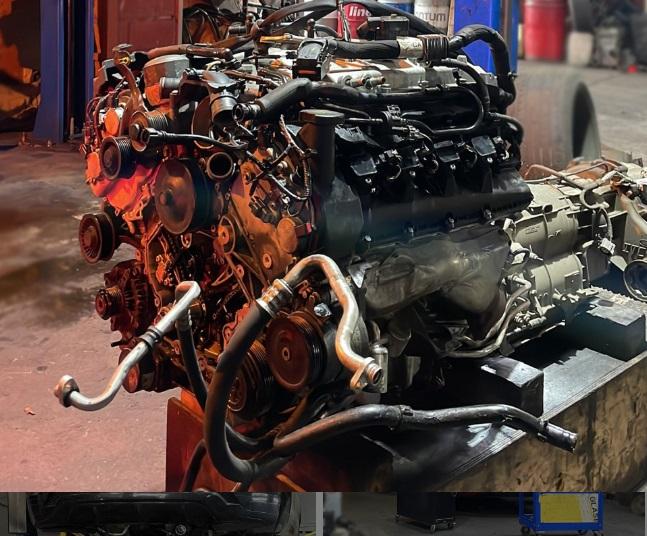Power, Performance, and Reliability of range rover engine

Whether you’re a car enthusiast, potential buyer, or existing owner, understanding the Range Rover engine lineup can help you make informed decisions about maintenance, upgrades, or even your next purchase.
In this guide, we’ll explore everything you need to know about Range Rover engines, including their types, performance, common issues, and maintenance tips.
A Brief History of Range Rover Engines
The Range Rover, launched in 1970, has gone through multiple generations. Each era introduced new engines designed to meet customer demands for performance, luxury, and efficiency.
· 1970s–1980s: Early models used a robust 3.5L V8 engine, prized for torque and durability.
· 1990s: Land Rover introduced diesel options, appealing to markets where fuel efficiency mattered.
· 2000s: More advanced petrol and diesel engines appeared, including supercharged V8s.
· 2010s–2020s: Hybrid and mild-hybrid powertrains entered the lineup, combining power with sustainability.
Types of Range Rover Engines
🔹 Petrol Engines
Range Rover petrol engines are known for their smoothness and power. Popular versions include:
· Ingenium 2.0L I4 Turbo – A balance between efficiency and performance.
· 3.0L V6 Supercharged – Delivers impressive horsepower for dynamic driving.
· 5.0L V8 Supercharged – The flagship engine, offering unmatched acceleration and towing capacity.
🔹 Diesel Engines
Favored in Europe and other markets, diesel Range Rover engines emphasize torque and efficiency:
· 2.0L SD4 Ingenium Diesel – Practical for everyday driving.
· 3.0L TDV6/SDV6 – Known for reliability and strong low-end power.
· 4.4L SDV8 – A high-performance diesel engine with excellent long-distance cruising ability.
🔹 Hybrid & Electric Powertrains
With the global shift toward sustainability, Range Rover introduced plug-in hybrid (PHEV) engines:
· P400e Plug-In Hybrid – Combines a 2.0L petrol engine with an electric motor for reduced emissions.
· Upcoming all-electric Range Rover models promise to redefine luxury SUVs for the EV era.
Performance and Driving Experience
Range Rover engines are engineered to deliver a balance of luxury and off-road toughness.
· Acceleration: The V8 Supercharged engine can go from 0–60 mph in under 5 seconds, rivaling sports cars.
· Off-Road Capability: Even diesel and hybrid models provide immense torque, crucial for challenging terrains.
· Towing Power: Depending on the engine, Range Rovers can tow up to 7,700 lbs.
· Fuel Efficiency: Hybrid options improve fuel economy, while diesels are preferred for long-distance travel.
Common Range Rover Engine Problems
While Range Rover engines are advanced, they’re not without issues. Here are some commonly reported problems:
1. Oil Leaks – Often found in older V8 engines.
2. Overheating – Can occur due to radiator or water pump failures.
3. Turbocharger Wear – A problem in high-mileage diesel models.
4. Timing Chain Tensioner Issues – Reported in some petrol engines.
5. Electrical Faults in Hybrids – Early hybrid systems faced reliability concerns.
👉 Regular servicing and proactive maintenance can prevent many of these problems from escalating.
Maintenance Tips for Range Rover Engines
Keeping your Range Rover engine in peak condition requires a mix of proper care and timely service:
· Oil Changes: Use manufacturer-approved oil and change it every 7,500–10,000 miles.
· Coolant Levels: Prevent overheating by checking coolant regularly.
· Air Filter Replacement: Improves efficiency and extends engine life.
· Fuel System Cleaning: Keeps injectors free from carbon buildup.
· Professional Diagnostics: Use certified Land Rover specialists for accurate servicing.
By following these steps, you can extend the life of your Range Rover engine and avoid costly repairs.
Why Range Rover Engines Stand Out
Range Rover engines aren’t just about raw power—they’re about engineering excellence.
· Versatility – From city driving to mountain trails.
· Luxury + Performance – Few SUVs offer the same balance.
· Future-Proof Technology – Hybrid and electric options show Land Rover’s commitment to sustainability.
For drivers who demand both luxury and reliability, the Range Rover engine lineup continues to set the benchmark.
Choosing the Right Range Rover Engine for You
If you’re considering a Range Rover, your choice of engine depends on your lifestyle:
· Daily Commuter: 2.0L Ingenium petrol or diesel offers efficiency.
· Performance Enthusiast: 5.0L V8 Supercharged delivers exhilarating power.
· Long-Distance Traveler: 3.0L or 4.4L diesel ensures torque and economy.
· Eco-Conscious Driver: The P400e hybrid provides sustainability without sacrificing luxury.
Final Thoughts
The Range Rover engine has evolved from a rugged V8 workhorse to a technologically advanced lineup that includes hybrids and, soon, electric models. Whether you prioritize power, fuel efficiency, or sustainability, there’s a Range Rover engine built to meet your needs.
Owning a Range Rover means more than driving an SUV—it’s about experiencing the perfect combination of power, prestige, and performance. By choosing the right engine and keeping it well-maintained, your Range Rover will remain a symbol of luxury for years to come.
- AI
- Vitamins
- Health
- Admin/office jobs
- News
- Art
- Causes
- Crafts
- Dance
- Drinks
- Film
- Fitness
- Food
- Games
- Gardening
- Health
- Home
- Literature
- Music
- Networking
- Other
- Party
- Religion
- Shopping
- Sports
- Theater
- Wellness


